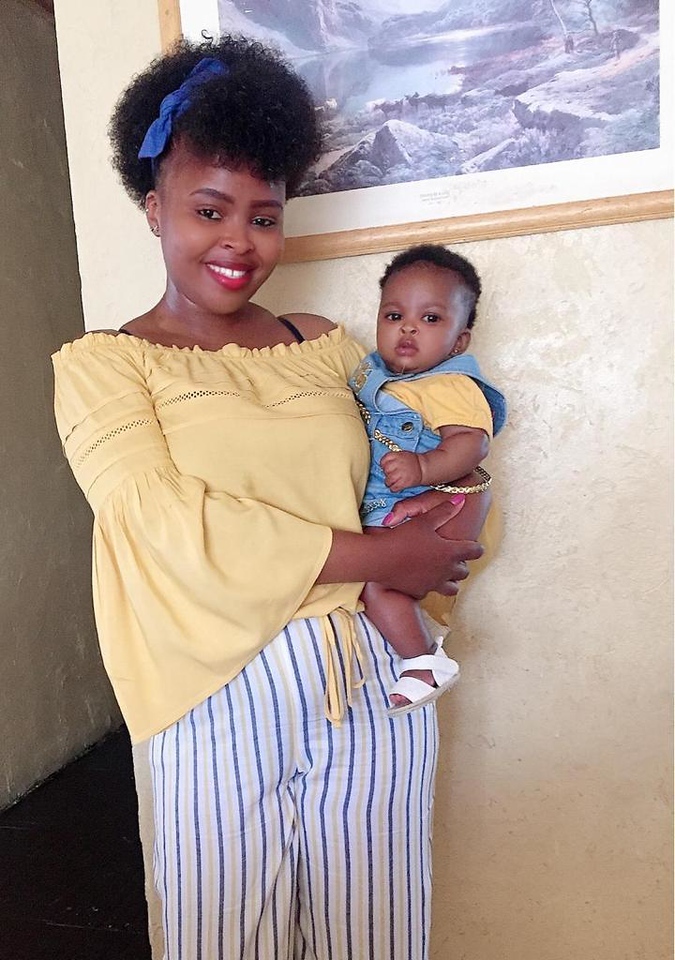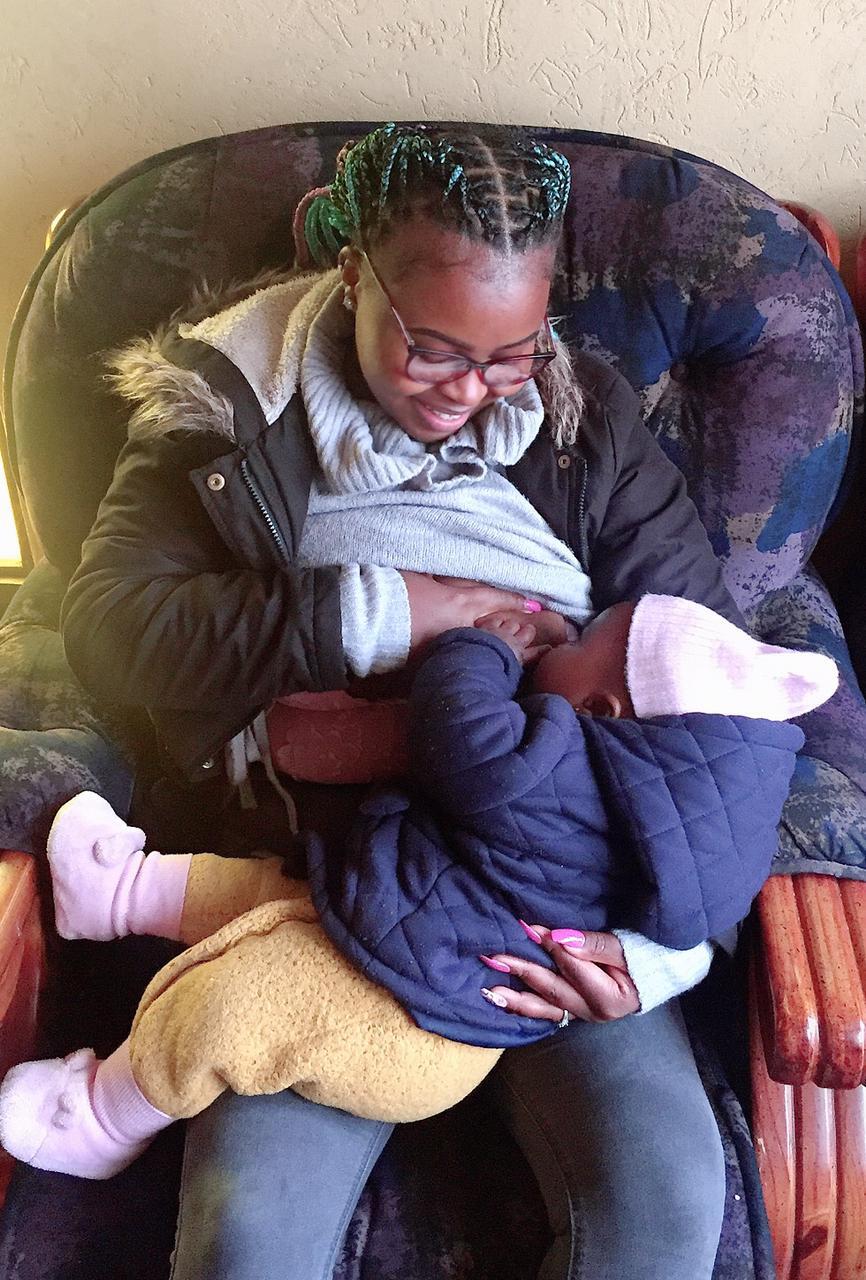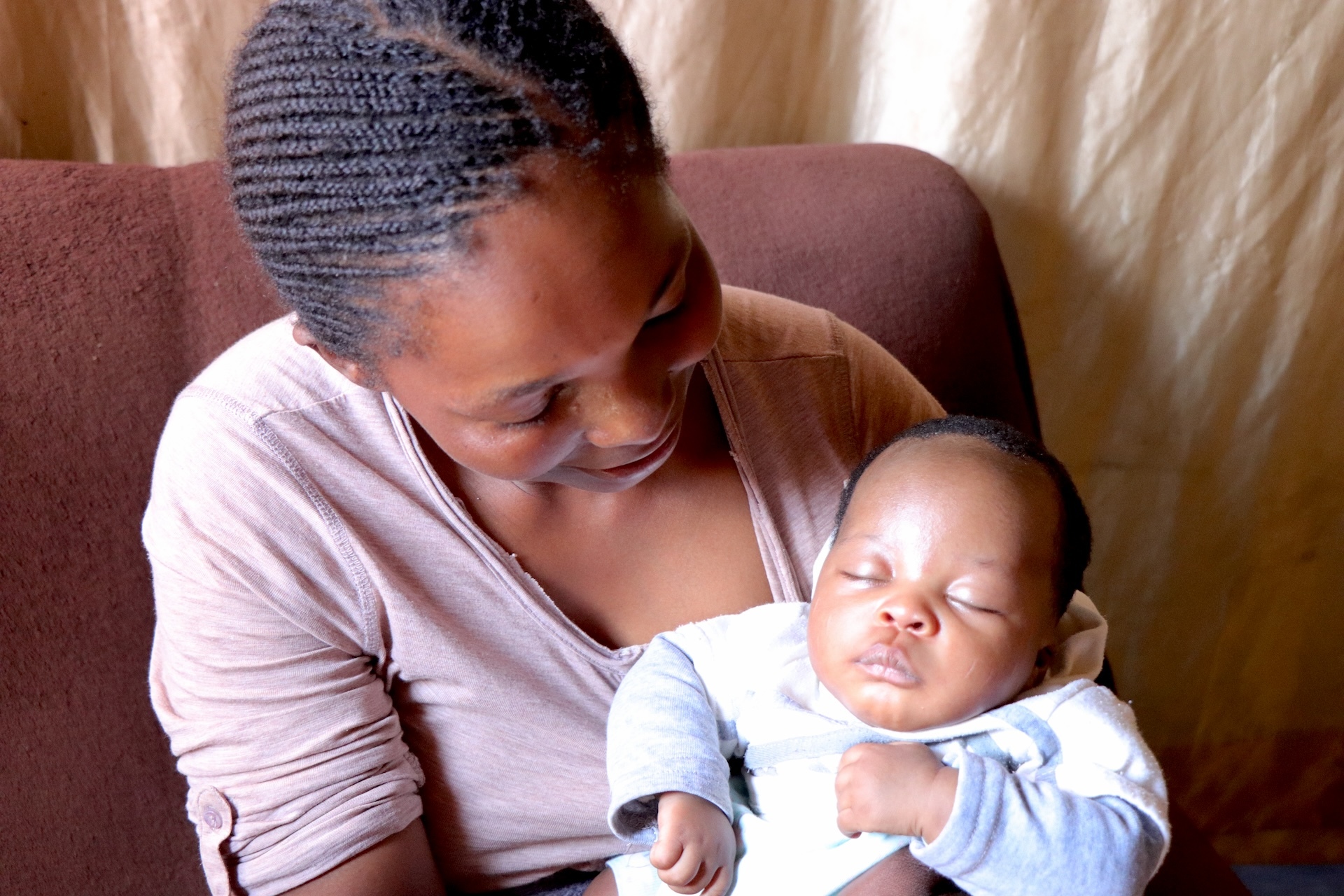 At the age of 19, Matsepo “Dee” Mphafi-Tanka learned that she is living with HIV. A young woman living in Maseru, the capital city of Lesotho, Dee wondered if she would ever achieve one of her dreams—to be the mother of a healthy baby. Through education and fellowship with other young people living with HIV, Dee overcame fear and stigma and came to believe that everything is possible.
At the age of 19, Matsepo “Dee” Mphafi-Tanka learned that she is living with HIV. A young woman living in Maseru, the capital city of Lesotho, Dee wondered if she would ever achieve one of her dreams—to be the mother of a healthy baby. Through education and fellowship with other young people living with HIV, Dee overcame fear and stigma and came to believe that everything is possible.
“HIV could not stop my dream—it can be managed like any other medical condition,” says Dee. “I always wanted to be a mother, but I knew I’d have to stay healthy and adhere to my treatment and ensure my viral load is undetectable to not transmit the virus to my loved ones, especially my unborn baby.
“Because the goal is to achieve an AIDS-free generation,” says Dee.
Now Dee is married, and in August 2020 she and her husband welcomed a healthy daughter, Ntaoleng Tlotlisang Tanka. When Dee realized that she was pregnant, she enrolled in the prevention of mother-to-child HIV transmission (PMTCT) program at her local health facility. By adhering to effective antiretroviral treatment, Dee maintains an undetectable viral load, which prevents the HIV in her body from infecting her child. This also allows Dee to breastfeed, giving her baby the nutrients and antibodies needed to thrive.
“For me, I always imagined that motherhood would never feel complete without breastfeeding. It brings me closer to my baby and creates the mother-and-baby bonding,” says Dee. At six weeks of breastfeeding, the baby was tested for HIV through the early infant diagnosis program and was found negative.
“I was nervous, but when I was told that the baby is free from HIV … what a relief!” exclaims Dee. Ntaoleng was tested again at nine months, and the result was again HIV-negative.

“We encourage both HIV-negative and HIV-positive mothers to exclusively breastfed their babies for six months,” says ‘Marethabile Mothibi, senior PMTCT advisor with the Elizabeth Glaser Pediatric AIDS Foundation (EGPAF). “Right now, most mothers opt for breastfeeding because of education provided during antenatal clinics. Women with HIV continue to take their treatment, and their viral load is monitored every six months to ensure they do not pass the virus to their babies.”
Lesotho recently incorporated new World Health Organization (WHO) guidance on breastfeeding in the context of HIV. The Ministry of Health emphasizes the importance of exclusive breast feeding in the first six months of life and the introduction of solid food after that time, while the baby continues breastfeeding, up to 24 months. Mothers living with HIV are encouraged to adhere to HIV treatment to attain viral suppression, minimizing the possibility of HIV transmission to the baby.
Breastfeeding comes with many benefits: breastmilk has all the nutrients that the baby needs to grow; it is full of antibodies that will strengthen the baby’s immune system; it is always warm and ready for the baby at any time—even at night, no need to wake up and prepare; it does not require refrigeration—but is always fresh from the source; and it is free. In addition, breastmilk strengthens bonding between the mother and her baby. That bonding can extend to the father and the whole family as they consciously support her and the baby.
World Breastfeeding Week begins on August 1. The 2021 theme is “Protect Breastfeeding—a Shared Responsibility.” As women are being encouraged to take up breastfeeding, barriers to breastfeeding must be addressed. Many women struggle to exclusively breastfeed due to their work, home life, and transit not accommodating breastfeeding. Through this initiative, husbands, family members, and the community at large are encouraged to support breastfeeding mothers to give them and their children the best chance for a healthy future. This includes encouraging the husband and other relatives to assist the mother at home, ensuring that women are afforded time and space to breastfeed at work, and generally reinforcing a culture in which the needs of breastfeeding are recognized.
Many women struggle to exclusively breastfeed due to their work, home life, and transit not accommodating breastfeeding. As women are being encouraged to take up breastfeeding, barriers to breastfeeding must be addressed.
In Lesotho, the Ministry of Health will elevate role models from local Maternal Child Health clinics who have completed their first six months of exclusive breastfeeding with the support of their communities. These mentor mothers will be honored with presents by the national breastfeeding patron, Her Majesty the Queen Masenate Bereng Seeiso.




